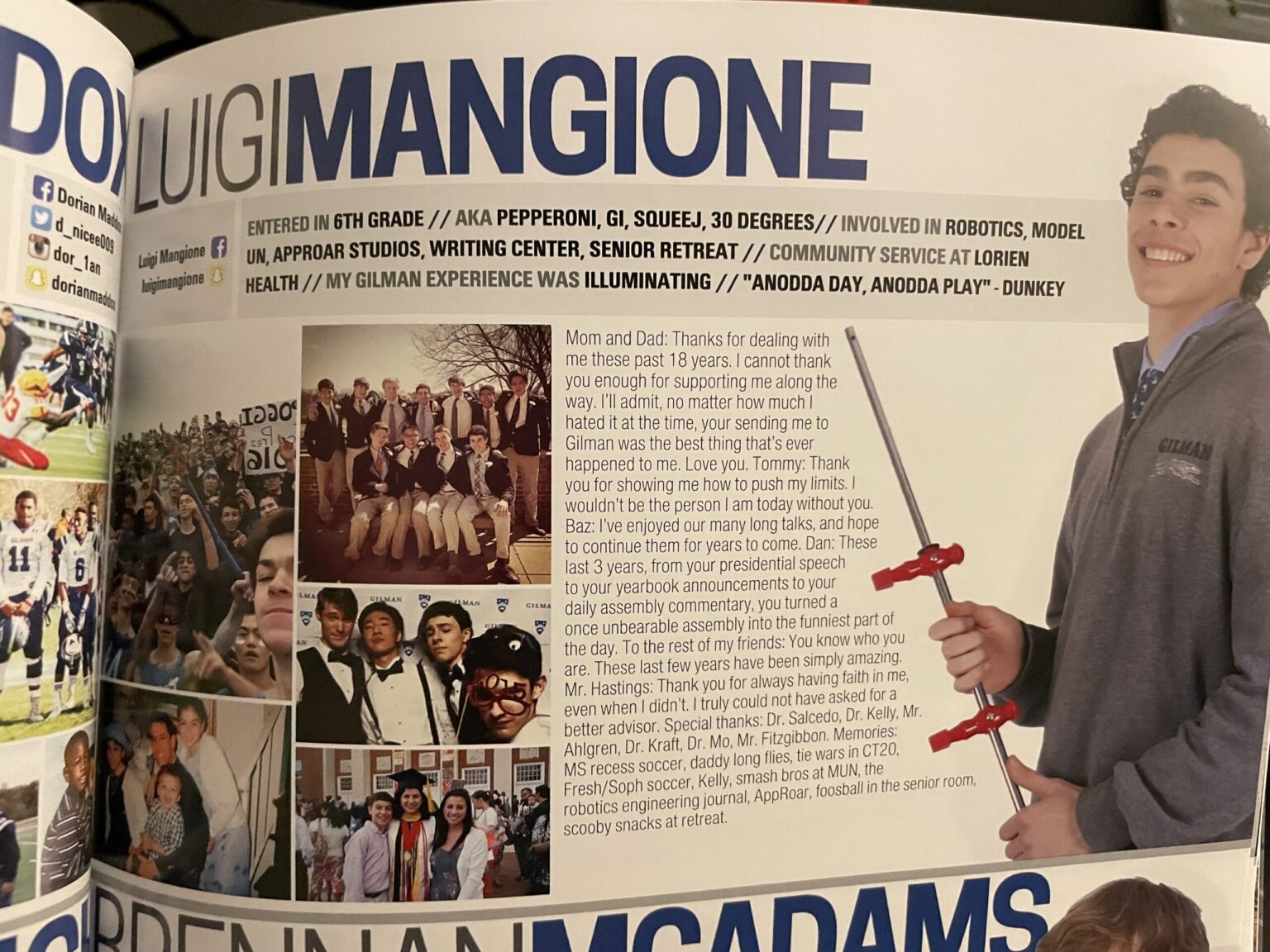Luigi Mangione, a 26-year-old former student at the University of Pennsylvania, has been charged with the second-degree murder of UnitedHealthcare CEO Brian Thompson. Authorities arrested Mangione after discovering he was the principal suspect in the fatal shooting. Further insights into Mangione’s life have emerged following his arrest, particularly from yearbook photos and information regarding his time at Gillman School in Baltimore, Maryland. It came to light that he was well-recognized in high school, notably winning the “Best at Pick-up Lines” superlative in his senior year, indicating a personality that seemed outgoing and socially adept.
The Gateway Pundit reported that Mangione had surfaced as a person of interest in Thompson’s murder, which shocked many given his background. Further intrigue arose from the revelation of a manifesto he authored, which expresses his culpability for the murder and also outlines his disdain for the American healthcare system. In the manifesto, Mangione suggests that he planned the crime meticulously, demonstrating a calculated mindset. He apologized for any pain caused by his actions but rationalized them by stating that those in the healthcare field had it “coming” to them, highlighting his deep-seated grievances against the industry.
Born and raised in the Baltimore area, Mangione’s family owns various businesses, including the Hayfields Country Club and a local radio station. This affluence perhaps granted him a sense of privilege that might underpin the drastic turn his life has taken. His familial connections extend to politics as well; he is a cousin of Republican State Delegate Nino Mangione. This context adds several layers to his narrative, illustrating how someone with opportunities and resources could become embroiled in such a heinous act, raising questions about mental health and societal pressures.
Further insights from classmates and friends reveal a contradictory picture of Mangione as a popular and intelligent individual. His former classmate, Freddie Leatherbury, recalled him as smart, athletic, and socially well-adjusted, signifying that he had a supportive social environment during his formative years. Mangione’s involvement in activities such as Model UN and the robotics club paints a picture of a well-rounded student with interests in both technology and global affairs. His early exposure to community service in the healthcare sector at Lorien Health nursing home indicates a level of commitment to helping others, which makes his subsequent actions even more perplexing.
The incident has prompted a response from the Gilman School community, where Mangione completed his high school education and was recognized as valedictorian in 2016. The school has issued a letter addressing the tragedy, striving to provide information and support to its community amid the fallout of such a violent act involving one of their own. Yearbook photos reflect his engagement in various extracurriculars, which contradicts the violent outcome attributed to him later in life. This juxtaposition has left many in the community grappling with the question of how such a talented, promising individual could veer so drastically off course.
As details continue to unfold surrounding the murder of Brian Thompson and Mangione’s confessions, the tragic narrative raises broader questions regarding mental health, the responsibilities of educational institutions to their students, and the societal structures that may influence individuals to commit violent acts. The implications of Mangione’s actions extend beyond his individual case, potentially spotlighting the need for increased awareness and support for mental wellness among young adults, particularly those who seemingly navigate their lives with privilege and success yet may harbor darker grievances beneath the surface.

